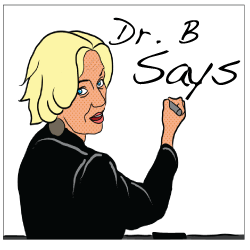To Teach or Not To Teach...
 For some people who enter into a teacher education program, teaching doesn’t turn out to be the career they though it was; it is not uncommon for people to change career paths. Some people may come to this realization during their training program, while others may stay with the profession for many years before deciding to leave. In this section we will look at why teachers at different stages of their careers leave the profession, the rates of teacher attrition, and career options outside of the classroom for people holding a Bachelor of Education degree. For some people who enter into a teacher education program, teaching doesn’t turn out to be the career they though it was; it is not uncommon for people to change career paths. Some people may come to this realization during their training program, while others may stay with the profession for many years before deciding to leave. In this section we will look at why teachers at different stages of their careers leave the profession, the rates of teacher attrition, and career options outside of the classroom for people holding a Bachelor of Education degree. |
|
Why do teachers and student teachers decide not to stay with the profession?
There are any number of reasons why people decide not to continue with teaching. For student teachers, it is reasonable for some people to realize that perhaps teaching wasn’t what they thought it was, that they don’t have the personal passion and drive to follow through on the commitment to teaching, that they really want a different type of job (different environment, different responsibilities, different social interactions), etc. Unfortunately, there are also some student teachers whose struggles are so great during their practica that this causes them to leave the profession. It may also be the case with student teachers that once they complete their degree they don’t enter the profession immediately and will follow other goals, but they may in fact return to teaching at a later point in their lives.
Practicing teachers who leave teaching may do so for reasons similar to those of student teachers. For example, teachers might decide that, after teaching for a while, they are ready to move on to other career goals and aspirations; this may be as a result of tiring of teaching, or simply wanting to pursue new career directions. The reason a teacher decides to leave the profession may be as straightforward as a personal life change that doesn’t allow the person to continue teaching. Teacher burnout is another major cause of experienced teachers leaving the profession. Teacher burnout can result from a heavy and varied course load (i.e. teaching full time and teaching several different subjects, some perhaps outside of the teacher’s areas of specialization), participation in a variety of extracurricular activities (e.g. coaching, teacher representative for school clubs and groups, staff representative for the local teacher’s federation, etc.), feeling isolated and/or pressured or feeling tired/exhausted and frustrated. Teacher burnout can ultimately lead to the teacher leaving the profession, or staying and largely becoming unsuccessful and/or ineffective.
back to top
How common is it for teachers to leave the profession?
The United States Department of Education provides the following statistics on teacher dropout in the US:
- After 3 years, 1/3 of new teachers leave the field
- After 5 years, almost half of those new teachers have left.
- In inner city schools, 1/2 of the teachers quit within 3 years.
Source: http://www.ed.gov/admins/tchrqual/learn/nclbsummit/dickson/index.html
While statistics in Canada are harder to find, a five-year study was conducted in Ontario in which a group of education graduates from 2001-2002 were followed to determine how many stayed with the profession, and more generally to document their experiences since becoming teachers. Included in the study was information collected from the Ontario Teachers’ Pension Plan showing that from 1993 to 1999 20-30% of new teachers withdrew from the pension plan with less than three years of teaching experience. The study also found that approximately 18% of those new teachers surveyed were at risk of leaving teaching.
For more information about this study and its findings, follow this link: http://www.oct.ca/publications/pdf/transitions_e.pdf
back to top
In addition to teaching in the classroom, how else can I use my education degree?
If you decide to complete your Bachelor of Education but do not wish to teach at either the elementary or secondary levels, there are many options for you that will allow you to put your degree to use. These include:
-
continuing with post-secondary studies to pursue a Master’s degree, more specialized studies in education, or studies in other related areas such as law, journalism or social work
-
continuing with post-secondary studies to pursue work in adult education; this specialization allows teachers to deliver training programs for corporations and/or work in human resources
-
working for companies that develop and publish textbooks
-
seeking employment in the business field; many of the skills people develop as teachers are very transferable to this field of work
-
working for specialized agencies that advocate for the rights and protection of children (i.e. anti-bullying agencies)



